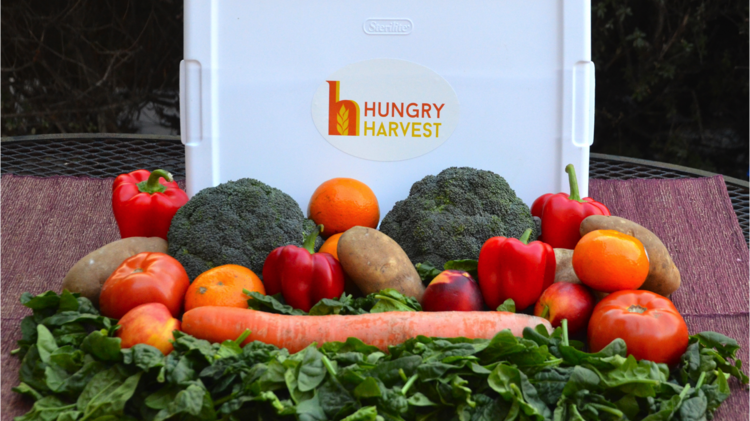Shark Tank food startup planting roots in Philadelphia after beta launch
A Maryland-based produce delivery startup that hooked one of the Shark investors on ABC's Shark Tank earlier this year has decided to stay in Philadelphia after a successful beta period.
Baltimore's Hungry Harvest, which received a $100,000 offer in January this year from Shark Tank investor Robert Herjavec for a 10 percent stake in the company, launched a beta period in Philadelphia immediately after appearing on the TV show.
The company buys surplus produce that local farmers and wholesalers are unable to sell to grocery stores because of aesthetic or logistic imperfections.The company then sends the variety packs to customers' doorsteps.
For every box sold, the company donates up to 2 pounds of produce to a shelter or food bank. The company for Philadelphia formed a partnership with Philabundance, providing food to about 90,000 people in the area, according to Hungry Harvest.
"We were excited to test the waters in Philadelphia early," CEO Evan Lutz told the Philadelphia Business Journal. "Purely based on its size, we were confident we could succeed here."
The results were better than expected, said Lutz, who said the company found Philadelphia is a "socially-conscious city, especially when it comes to food."
Philadelphia is the first city the company is expanding to outside of its core Beltway area of Baltimore, Washington, D.C, and northern Virginia.
There were a number of key metrics the company wanted to hit before officially launching in Philadelphia, like a positive return on investment, acquiring more than 300 customers and minimizing delivery process errors.
"We focused on getting our logistics processes in place, hired a team of drivers, found partners, and collected feedback from our customers to ensure Philadelphians would have a great experience with Hungry Harvest," Lutz said.
Now that these processes have been proven, the company is now able to move "full steam ahead" with its launch.
The company during its beta period delivered throughout Philadelphia and some of the suburbs. As part of its official launch, Hungry Harvest will expand its delivery zones to include the Main Line, South Jersey, and other parts of Montgomery and Chester counties.
The new areas are collecting pre-orders, and the aim is to begin delivery on Nov. 20.
The food industry is experiencing a major consumer trend toward fresh foods, which comes with a demanding preference set in that customers want "beautiful, blemish-free and visually abundant" food, according to Sara Williamson, assistant professor at St. Joseph's University.
This results in a lot of unsold, perishable products that are still edible. It's a financial loss for the retailer that eventually "ends up being calculated as part of the price we pay for what we do purchase," Williamson said.
Hungry Harvest, however, gets it produce before they're sent to grocery stores, so the question becomes what farmers and distributors were doing with the unsold produce.
"If it was all direct disposal, that is a different impact than donation or even composting," Williamson said. "For example, if farmers were composting the unsold produce and now Hungry Harvest is buying it from them, that provides an incremental revenue but also may necessitate purchasing fertilizer externally."
"If wholesale and distributors were donating in bulk to Philabundance but now are able to sell to Hungry Harvest, then Philabundance secondary market donations stand to decrease, food waste stays about the same, but profit for distributor and wholesaler increases."
Philabundance at first was worried its donations may decline as a result of Hungry Harvest entering the Philadelphia market, but a shift in Philabundance's strategy may actually increase its donations, according to Scott Smith, director of food acquisition.
"We’ve started to purchase produce that is near the end of its life — for a discounted rate — as well as accepting [Hungry Harvest's] donations," Smith said.
Philabundance as a result is now being viewed as a partner, and the organization can purchase produce with a longer shelf life. Philabundance also pays in under 14 days as opposed to major retailers, which can take up to 120 days.

No comments:
Post a Comment